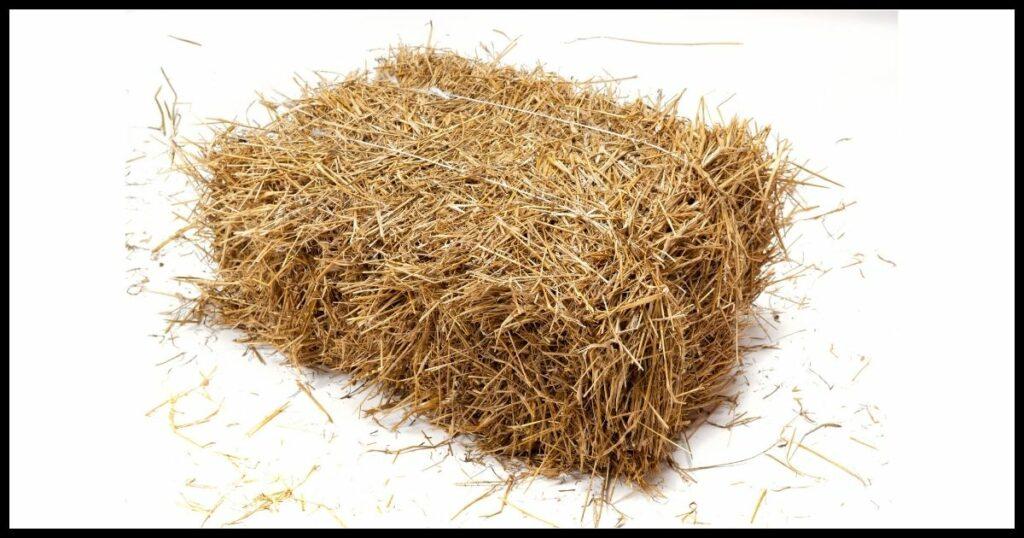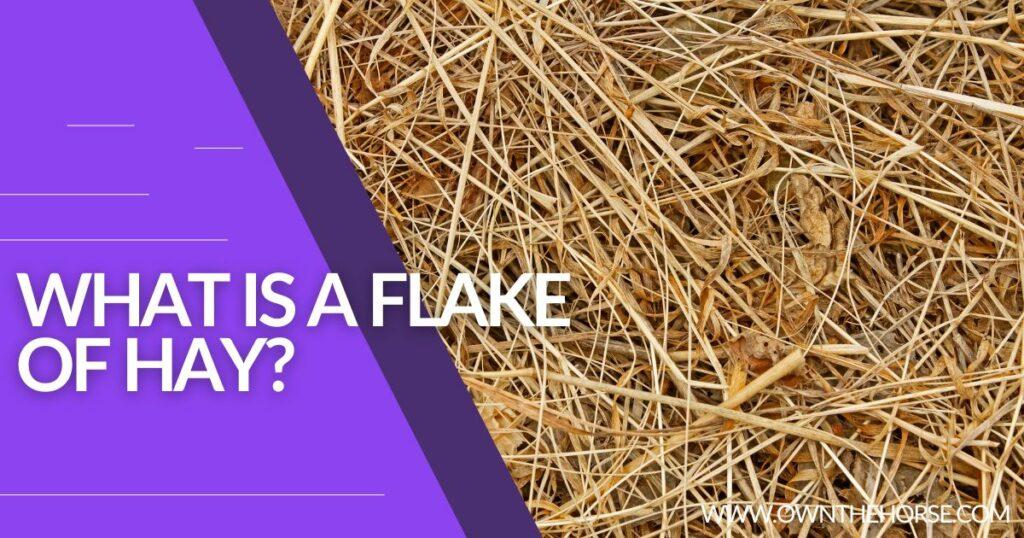As an Amazon Associate we earn from qualifying purchases.
Hay is an important component of a balanced diet for many domestic animals, including horses, cows, goats, and sheep. A flake of hay is a compact bundle of dried grass that has been harvested, cured, and baled for feed. It is a vital source of nutrition for animals that do not have access to pasture or other sources of fresh forage.
What is a Flake of Hay?
A flake of hay is a compressed bale of dried grass, which is often used as a food source for livestock. It can be made from a variety of different grasses and plants, including clover, alfalfa, and timothy grass, to name just a few. The process of making hay involves cutting the grass at its peak, when it is rich in nutrients, and then allowing it to dry in the sun. Once the grass has dried, it is then baled, either by hand or using a machine, and compressed into a compact, rectangular shape.

SEE ALSO : How Many Flakes Of Hay Are in a Bale?
The Process of Harvesting Hay
Hay is typically harvested when the grass is in the early stages of seedhead development, known as the “boot” stage. This ensures that the hay contains a good mix of leaves, stems, and seedheads, which are all important sources of nutrition for animals.
The harvesting process involves cutting the grass, allowing it to wilt for a short period of time, and then raking it into windrows. The windrows are then baled into compact, rectangular bales using a baler machine.
Types of Hay
There are several different types of hay, each with its own unique nutritional profile. The most common types of hay include alfalfa, timothy, bermuda, orchard grass, and brome.
Alfalfa hay is a popular choice for horses, as it is high in protein and calcium. It is also a good source of energy, making it ideal for performance horses.
Timothy hay is a good choice for rabbits, guinea pigs, and other small herbivores. It is lower in protein and calcium than alfalfa, but higher in fiber, which is important for maintaining digestive health.
Bermuda hay is a popular choice for cattle, as it is high in energy and has a good balance of protein and fiber. It is also a good choice for horses that are prone to digestive upset.
Orchard grass is a good choice for horses that are prone to allergies, as it is less likely to cause an allergic reaction. It is also a good source of fiber, making it ideal for maintaining digestive health.
Brome hay is a good choice for horses and other livestock, as it is high in energy and has a good balance of protein and fiber. It is also a good source of vitamins and minerals, making it ideal for maintaining overall health.
Storing and Feeding Hay
Hay should be stored in a dry, well-ventilated area to prevent mold growth and deterioration. It is important to avoid stacking bales directly on the ground, as moisture from the ground can cause the bottom of the bales to rot.
When feeding hay to animals, it is important to provide a consistent supply, as animals will become accustomed to their diet and may refuse to eat hay that is different from what they are used to. It is also important to provide hay that is free from mold, as mold can cause respiratory problems in animals.
Frequently Asked Questions
How much does a flake of hay cost?
A flake of hay typically costs between five and ten dollars, depending on the type of hay and the amount purchased. Quality hay tends to cost more, while lower-grade hay is discounted. Hay is sold in bales, weights and flakes, and when purchased in bulk, you can often get a better deal. It is important to purchase hay that is fresh and free of mold and dust, as moldy hay can be harmful to animals. Hay that is properly stored and cared for can last for years, so it is a good investment for any animal owner.
To purchase flakes of hay follow this link.
What is a Flake of Hay – Final Thoughts
Hay is a crucial component of a balanced diet for many domestic animals, and understanding the different types and nutritional profiles of hay can help you choose the best option for your animals. By storing hay properly and providing a consistent supply, you can ensure that your animals receive the necessary nutrition to maintain good health and wellbeing.
Amazon and the Amazon logo are trademarks of Amazon.com, Inc, or its affiliates.

Hey there, I’m Jasmine! I’m a total horse fanatic and have been working with these amazing animals for as long as I can remember. I’m passionate about sharing my love for horses with others and helping them learn more about these majestic creatures. As a professional horse trainer and riding instructor, I’ve developed a deep understanding of equine science and am committed to the welfare of horses. That’s why I founded OwnTheHorse.com, a blog where I share my knowledge and insights with fellow horse enthusiasts. I love connecting with my readers and building a friendly community of horse lovers. Whether you’re a seasoned equestrian or just starting out, I’m here to help and inspire you. Above all, I’m a friendly and compassionate person who truly cares about the well-being of horses and their human companions.

